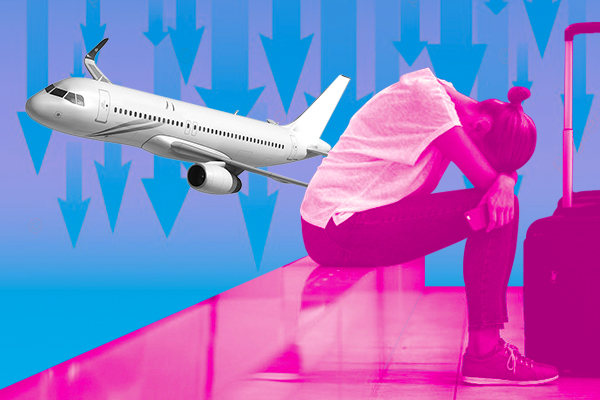Summer travel was hot, but it’s cooling off now, a potentially troubling sign for hotels and the recovery.
As global markets now contend with the latest move from the Federal Reserve and other central banks (the Fed approved a 0.5-percentage-point increase on Wednesday), there is good consumer news on inflation, which appears to be enervating, but hotels are still bracing for a possible pullback in travel, evidenced by a recent decline in average daily rates.
Prices for hotels, motels and other lodging dropped nearly 5% in November from October, according to the latest government inflation report, suggesting that hotels are prepared for a drop in occupancy and lowering rates to induce demand.
Preliminary November 2022 data from STR show that ADR is tracking more than $11 lower than in October, but is still almost $20 higher than in November 2019.
Though leisure travel has traditionally been seen as discretionary, it boomed in the aftermath of the pandemic in what many dubbed “revenge travel.” However, prospects over a looming recession are having consequences on travelers’ willingness to spend on travel, especially as other daily costs rise.

Writing from PwC’s London office, Lisa Hooker, industry leader for consumer markets at PwC, wrote: “The slight slowdown in headline inflation from 11.1% to 10.7% will be of little consolation to households contending with record cost-of-living increases in so many areas of essential spending. Utility costs in the home continue to be the biggest contributor to CPI, offset only by the stabilization in petrol prices, compared with the increases we saw last autumn.
“For retail and hospitality operators, record levels of inflation dampening consumer demand—combined with the current wave of strikes encouraging customers to stay at home—in what would otherwise be their most important trading period cannot be good news.”
A survey by PwC of consumers showed that respondents intend to spend 8% less on presents and celebrations this holiday season—£1.8 billion less coming into the economy compared with last year.
Meanwhile, Morgan Stanley just released a rather middling note on the state of travel and hospitality, expressing both bear and bull scenarios. “We heard investors both express a bear case of over-earning leisure and potential for deteriorating business to drive RevPAR down 20% in 2023, which would be worse than the GFC,” it said. “By contrast, others acknowledged an outcome where ongoing share of wallet catch-up and/or a multiyear return to travel could drive sustained double-digit growth.”
MS said it “flexed” both assumptions for U.S. RevPAR, where a bear scenario assumes a hard landing with a recession comparable to the GFC. “Current trends,” wrote, “are not reflective of such slowing as RevPAR continues to recover with the easing of restrictions globally.” Meanwhile, the bull scenario implies that real RevPAR reaches a new peak of around 7% above prior peak. “However, our consumer and corporate travel surveys indicate some pullback in consumer spending and firms shifting to virtual.”
The result: “We land in the middle, with a base case that assumes a soft landing and real RevPAR returning to prior peak levels less some business impairment.”
Meanwhile, in a somewhat incongruity, Delta Air Lines says the travel boom isn’t over.
There is a direct correlation between the success of hotels and airlines, with the former’s reliance on the airline industry to carry its demand.
Delta said it expects a 15% to 20% jump in revenue in 2023 from this year. The airline along with other airline executives have been rather bullish on travel demand of late.
“We’ve seen our recession,” CEO Ed Bastian told CNBC about the airline industry. “Consumers are prioritizing their spend, where they’re making choices, and they’re prioritizing investing in themselves and experience.”
